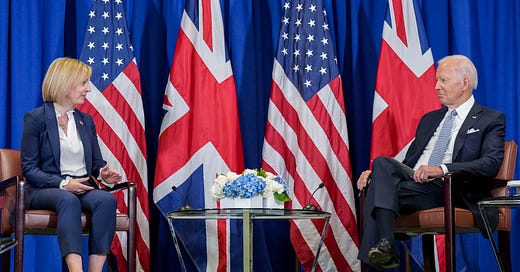Truss Out, Leadership Crisis Remains
The UK Is Not the Only Nation Hurtling Toward a Winter of Discontent.
Keep reading with a 7-day free trial
Subscribe to The New Nationalist to keep reading this post and get 7 days of free access to the full post archives.





